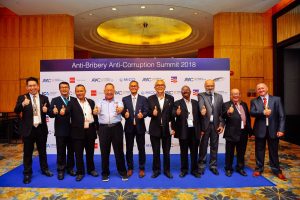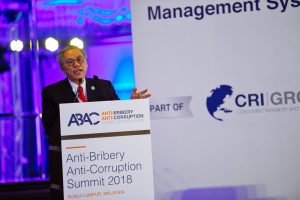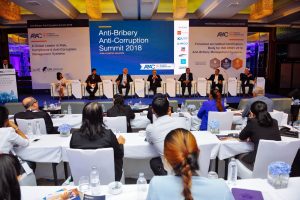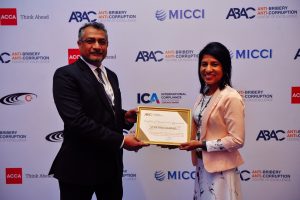Fake degrees and fake employment certificates? What now?
In today’s business environment, fraudulent practices and manipulating the trust of others is so commonplace that people do it very often and with confidence. Unfortunately, this is also true when it comes to employment, as some potential candidates will present fake and bogus background certificates to try to gain an edge in the hiring process. Shedding light on this concern, CRI Group would like to discuss one such issue which is of fake and bogus background certificates.
Uneducated, untrained and incompetent personnel often rely on fake degrees and fake employment certificates to get hired into positions for which they are unqualified. Many countries still lack a culture in which verification is conducted as a matter of course to establish employment credentials, and CRI Group’s investigators have seen countless incidences in which degrees were discovered to be fake – including cases in which an employee using fake credentials had been at their position of employment for more than a decade!
The practice is so common that many are doing it, while just a small percentage are caught. In Pakistan, for example, even well-known personalities have been found to be deceptive, including former senator Yasmeen Shah, who presented a fake Bachelor of Arts Degree (The Express Tribune 2017) and Usman Dar of Pakistan Tehreek E Insaf, who provided a fake Masters Degree (Pakistan Today 2017).
Where do people secure fake degrees so easily? There are numerous agents that help to make such bogus degrees – at a cost. For example, there was the famous scandal involving Karachi-based IT company “Axact Private Limited” who was selling fake degrees and diplomas. (Naqvi 2015)
CRI Group investigated one such individual who provided a Bachelor’s Degree with the major “Information Technology” to our client (one of the largest and fastest-growing multinational companies in Pakistan), which was duly processed by our team for verification and revealed to be a bogus degree. When we confronted the individual, instead of admitting his mistake, he argued and questioned our methods while submitting another bogus degree of “Bachelor of Science,” which he claimed was the right one.
CRI Group roundly condemns such fraudulent practices, and we seek to make people aware of the importance of background screening and its essential role in the recruitment process. There should be a paradigm shift from “Trust all Employees” to “Trust but Verify,” so that in this era of competition the deserving candidate for a particular job gets the opportunity to hold the position that he/she deserves. In order to prosper, organisations must eliminate unsafe hiring practices and take measures to be aware of such attempts.
Bibliography
- The Express Tribune. 2017. “Ex-senator Yasmeen Shah’s BA degree declared fake.” November 13. https://tribune.com.pk/story/1557286/1-ex-senator-yasmeen-shahs-ba-degree-declared-fake/ .
- Naqvi, Hassan. 2015. “Axact wasn’t just selling fake degrees!” Pakistan Today. May 24. https://www.pakistantoday.com.pk/2015/05/24/axact-wasnt-just-selling-fake-degrees/ .
- Pakistan Today. 2017. “Britain’s education dept does not recognise Masters degree of PTI’s Usman Dar: report.” November 28. https://www.pakistantoday.com.pk/2017/11/28/britains-education-dept-does-not-recognise-ptis-usman-dar-degree-report/.
- Shehzad, Rizwan. 2017. “Axact fake degree case: Judge confesses to receiving Rs5m bribe to acquit Shoaib Shaikh.” THE EXPRESS TRIBUNE > PAKISTAN. June 16. https://tribune.com.pk/story/1436815/axact-fake-degree-case-judge-confesses-receiving-rs5m-bribe-acquit-shoaib-shaikh/.
How to Protect Your Business From Money Laundering Activities
Money laundering should be near the top of the list of any business owner’s concerns. Anti-money laundering legislation and regulations are strict and increasingly enforced, and remaining in compliance through implementing proper prevention controls is a must. Countless businesses large and small – from corporations to third-party contractors – have learned this lesson the hard way. Take Citibank, for example. The banking giant was recently fined $70 million in the U.S. “for failing to address shortcomings in its anti-money laundering policies” (Reuters, 2018). It was the Office of the Comptroller of the Currency that levied the fine against the bank because it had allegedly failed to address money laundering concerns that were first flagged five years earlier.
The case is notable because it isn’t linked to a specific new allegation of money laundering per se. It is the alleged lack of compliance and efforts to enhance prevention policies that placed Citibank in hot water (Bloomberg, 2018).
Money Laundering Cases in the News
Citibank isn’t alone. Other recent high-profile cases serve as warnings to companies that aren’t taking money laundering prevention seriously:
- Pakistan’s biggest lender, Habib Bank Ltd, was fined $225 million by the New York State Department of Financial Services (DFS) for failures over anti-money laundering and sanctions rules at its single U.S. branch. (Reuters, 2017). According to media reports, the DFS was previously seeking to impose a fine of up to $630 million, the largest ever faced by a Pakistani financial institution, for “grave” compliance failures.
- Western Union, accused of failing to deter and report transactions related to money laundering, settled its case with the DFS for $60 million (Reuters, 2018). From 2004 to 2012, Western Union allegedly failed to implement and maintain an effective anti-money laundering program aimed to deter criminals who were using its electronic network. The company also allegedly ignored suspicious transactions to locations in China by several high-volume agents (including money transfers that were linked to human trafficking).
- French bank watchdog ACPR fined Société Générale, one of France’s largest banks, 5 million euros for a number of alleged shortcomings in its money laundering and terrorism financing prevention controls (Reuters, 2018). Also, a French investigator sent documents to Brazil prosecutors that suggest Société Générale might have breached money laundering rules in the alleged corruption surrounding the selection of Rio de Janeiro as the host for the 2016 Olympics (New York Times, 2017). The allegations involve payments from a Brazilian businessman to the son of a former Olympic Committee member – the payments were allegedly routed through Société Générale accounts.
Money Laundering’s Lasting Harm
Anti-money laundering (AML) efforts by regulatory bodies worldwide are serious business. Multinational organisations, and especially financial institutions, must employ the toughest AML compliance controls and standards to avoid the risk of even appearing to run afoul of AML laws. That’s why CRI Group advises clients to have robust AML controls in place, especially when dealing in business overseas, and entering into any new partnerships or mergers.
The impact of corruption and money laundering allegations are often severe, and can include:
- Damaged corporate reputations and brand devaluation
- Eroding employee moral
- Potential consumer boycotts
- Negative investor perceptions
- Possible legal action
- Fines and potential jail terms for directors
The best way to prevent and detect money laundering is to have a robust set of anti-money laundering (AML) processes in place. CRI Group’s Investigative Due Diligence services provide the specialised intelligence needed by global financial institutions and multinational corporations to guarantee complete compliance with anti-money laundering (AML) regulations and legislation involving trans-national implications.
Strategies to Combat Money Laundering
As part of any system of anti-money laundering controls, there are some common-sense elements that can help keep an organisation better protected. CRI Group founder and CEO Zafar Anjum said that it’s important that companies take a top-down approach to prevent money laundering because in today’s climate, they cannot afford to take a blind eye.
“The days when companies could plead ignorance to money laundering activities taking place among their business transactions are over,” Anjum said. “Governments have been clear with new laws and regulations that they expect a proactive effort to prevent money laundering and terrorist financing, and they will prosecute organisations and their personnel who don’t meet this expectation.
“To take things a step further, most international companies are performing due diligence and taking careful measures not to partner with organisations that are high on the money laundering risk scale, because that would increase their exposure,” Anjum said. “Being in compliance isn’t just a sound legal strategy – it’s also good business.”
By adopting policies and procedures aimed to prevent money laundering and terrorist financing, companies will enhance their efforts to be on the right side of compliance. A few of these policies include:
- Scrutinising unusually large and/or complex transactions. Systems should be automated to flag these types of transactions for review to determine their purpose and legitimacy.
- Reviewing odd patterns of transactions. Sometimes smaller transactions can reveal a pattern of illegal activity related to money laundering or terrorist financing; AML software will flag such patterns of possible abuse for review.
- Disallowing anonymity among financial transactions. This common-sense protocol can help discourage and prevent money laundering activities, as anonymity is the shield through which most suspicious actors hide their financial activities.
- Identifying clients who might be politically exposed persons (PEP). PEPs are recognised as such by the Financial Action Task Force (FATF), an independent inter-governmental body that develops and promotes policies to protect the global financial system against money laundering, terrorist financing and the financing of proliferation of weapons of mass destruction.
- Conducting client due diligence. Within the boundaries of a jurisdiction’s privacy laws, the organisation should perform due diligence on high volume clients to verify their identities, business purposes and business relationships.
- Maintaining complete and thorough records. This includes clients, transactions, and due diligence findings that should be kept on file for at least five years.
- Training employees. As with all areas of fraud prevention, the front line against money laundering is the organisation’s staff. Employees should be aware of anti-money laundering and anti-terrorist financing laws and regulations, and their personal responsibility in helping the organisation remain in compliance. Expert training and certification should be provided on a scheduled basis to keep employees knowledgeable about changes in the law, new threats and updates to control procedures.
Ensuring compliance is a responsibility that must be embraced and managed at the senior level of the company. Anjum, a 27-years veteran in fraud prevention, protective integrity, security and compliance, said this includes communicating the policies and procedures – as well as the results: “If there are areas to improve, management must take the lead in recognising those weaknesses and developing strategies to address them,” Anjum said.
CRI Group has a vast offering of services to help organisations stay ahead of the curve with anti-money laundering measures and the processes required to remain fully in compliance with applicable laws and regulations, giving companies, their business partners and their clients the confidence of knowing that the organisation, and its reputation, is protected from the negative consequences of money laundering.
Anti-money laundering laws and regulations are constantly being strengthened as governments come under pressure to protect their economy and taxpayers from the damage caused by this widespread crime. Today, organisations must be diligent in protecting themselves, their investments, their reputations – and they must be fully compliant within the law. Contact CRI Group and be better protected against the risks of money laundering today.
Thank you for attending our ABAC 2018 Malaysia Summit
Thank you for attending the ABAC Summit Malaysia last Tuesday! We are proud to have brought such an amazing group of distinguished speakers and respected delegates together to address the bribery and corruption issues worldwide. We are extremely thankful to all our speakers for making this #ABACSummit2018 a successful one!
Dr KM Loi, Cristian Nicoara, Md Alimuddin Rahim, Uzair Ahmed, Cynthia Gabriel, Mohd Nur Lokman Bin Samingan, Drago Kos – your contribution of knowledge and time is highly appreciated of everyone fighting bribery and corruption worldwide.
Respected delegates – we are extremely happy you joined us for the Summit and we hope this event helped you in more ways than one. Please take a moment to help us improve future events by taking a brief 40 seconds survey. Your feedback is extremely valuable to our ongoing effort to deliver anti-bribery anti-corruption events targeted to meet your needs and expectations. Download the presentations of the distinguished Anti-Bribery Anti-Corruption speakers at ABAC Summit 2018 here.
Together we can stand up against corruption – see you next time at ABAC Summits, organised by CRI® Group in partnership with ABAC® Center of Excellence.
Photos of ABAC Summit Malaysia 2018
- Happening now: CRI® at SHRM17 in New Orleans
Who is CRI® Group?
Based in London, CRI® Group works with companies across the Americas, Europe, Africa, Middle East and Asia-Pacific as a one-stop international Risk Management, Employee Background Screening, Business Intelligence, Due Diligence, Compliance Solutions and other professional Investigative Research solutions provider. We have the largest proprietary network of background-screening analysts and investigators across the Middle East and Asia. Our global presence ensures that no matter how international your operations are we have the network needed to provide you with all you need, wherever you happen to be. CRI® Group also holds BS 102000:2013 and BS 7858:2012 Certifications, is an HRO certified provider and partner with Oracle.
In 2016, CRI® Group launched Anti-Bribery Anti-Corruption (ABAC®) Center of Excellence – an independent certification body established for ISO 37001:2016 Anti-Bribery Management Systems, ISO 37301 Compliance Management Systems and ISO 31000:2018 Risk Management, providing training and certification. ABAC® operates through its global network of certified ethics and compliance professionals, qualified auditors and other certified professionals. As a result, CRI® Group’s global team of certified fraud examiners work as a discreet white-labelled supplier to some of the world’s largest organisations. Contact ABAC® for more on ISO Certification and training.
Corruption won’t stop: is your organisation protected?
In one case, an enforcement agent for a Malaysian government department pleaded guilty for receiving a bribe from a business owner. In another, a U.S. district attorney from Philadelphia was accused of taking cash in return for helping people with their legal cases. He was accused of 28 counts of bribery, and in the end was given a deal to plead guilty on one count. Both cases show how easy it is for organisations to fall victim to bribery and corruption.Businesses, non-profits, government organisations both face a risk to their financial well-being and reputation.
In Malaysia, the case centred around an employee of the Domestic Trade, Cooperatives and Consumerism Ministry. According to the article “Domestic Trade enforcement staff fined RM1,200 for bribery” published in the New Straits Times, Muhammad Mat Sa’ad, 36, was charged with taking bribes from a fuel storage owner in 2014. His case was prosecuted by the Malaysian Anti-Corruption Commission (MACC).
In the U.S., Philadelphia’s top law enforcement officer, District Attorney R. Seth Williams, pleaded guilty to bribery in a more sweeping case with some very troubling details. According to the New York Times article “Philadelphia District Attorney Pleads Guilty to Bribery and Resigns,” Williams allegedly accepted bribes from business people in return for offers of legal help with their cases or those of their friends. But he may have also defrauded his own mother.
The article states:
“Mr. Williams accepted gifts including a trip to the Dominican Republic and checks for thousands of dollars from people who wanted favours, prosecutors said. According to an indictment by the United States attorney’s office for New Jersey, he promised one of the business people that he would “look into” a case that had been brought against a friend of that person.
He also faced charges including wire fraud and extortion for his alleged personal use of political action committee funds and government vehicles. Among the most damaging charges against Mr. Williams was that he defrauded a nursing home and family friends of money that was designated for the care of his mother.”
He faces a up to five years in prison and a fine of up to $250,000.
These types of troubling cases can likely be prevented with the right training, internal controls, and certification. The International Organization for Standardization (ISO) issued the ISO 37001:2016 Anti-Bribery Management System standard to help companies worldwide increase and measure their efforts against bribery and corruption.
CRI® Group is registered as a foremost ISO 37001:2016 Certification Body with the Dubai Accreditation Center (DAC) Government of Dubai, UAE, and has formally launched its ISO 37001:2016 Anti-Bribery Management Systems certification program. ISO 37001:2016 certifies that your organisation has implemented reasonable and proportionate measures to prevent bribery. These measures involve top-level leadership, training, bribery risk assessment, due diligence adequacy, financial and commercial controls, reporting, audit and investigation.
Through CRI® Group’s 3PRM-Certified™, the ISO 37001:2016 Anti-Bribery Management System Certification will help your company, organisation or department to reduce risk of bribery and corruption by establishing, implementing, maintaining and improving your management system. The certification empowers you with the ability to safeguard and maintain the integrity of your company by:
- Guaranteeing that all workers and agents are devoted to the latest anti-bribery practice.
- Regularly validating compliance to appropriate legislation like the FCPA and UK Bribery Act 2010.
- Jointly cooperating with stakeholders to observe and reduce the risks throughout your supply chain.
- Externally scrutinising your company, testing the effectiveness of your anti-bribery policies and processes.
- Creating “Compliance in Action.”
ISO 37001:2016 Anti-Bribery Management System certification is offered under CRI® Group’s ABAC® Centre of Excellence, an independent certification body established for Anti-Bribery Management System training and certification, ISO 37301 Compliance Management Systems and Risk Management System certification. The program will be tailored to your organisation’s needs and requirements. For assistance in developing and implementing a fraud prevention strategy, contact ABAC® today or get a FREE QUOTE now!
Who is CRI® Group?
Based in London, CRI® Group works with companies across the Americas, Europe, Africa, Middle East and Asia-Pacific as a one-stop international Risk Management, Employee Background Screening, Business Intelligence, Due Diligence and other professional Investigative Research solutions provider. We have the largest proprietary network of background-screening analysts and investigators across the Middle East and Asia. Our global presence ensures that no matter how international your operations are we have the network needed to provide you with all you need, wherever you happen to be. CRI® Group also holds BS 102000:2013 and BS 7858:2012 Certifications, is an HRO certified provider and partner with Oracle.
In 2016, CRI® Group launched Anti-Bribery Anti-Corruption (ABAC®) Center of Excellence – an independent certification body established for ISO 37001:2016 Anti-Bribery Management Systems, ISO 37301 Compliance Management Systems and ISO 31000:2018 Risk Management, providing training and certification. ABAC® operates through its global network of certified ethics and compliance professionals, qualified auditors and other certified professionals. As a result, CRI® Group’s global team of certified fraud examiners work as a discreet white-labelled supplier to some of the world’s largest organisations. Contact ABAC® for more on ISO Certification and training.
Top 4 Red flags during a Merger & Acquisition
The business world is often transitional, and the landscape changes as entities grow or industries change – and the players involved have to change with it. Mergers and acquisitions are examples of these “transitional times,” and they are also among the most critical times to conduct proper and thorough due diligence.
There are inherent risks involved with the “unknown factor” that outside entities represent. By nature, merging with another entity, or acquiring it altogether, can be an exciting time, but background screening is especially crucial at this juncture.
When conducting due diligence before a merger or acquisition, what are some of the red flags that should make you take a closer look?
CRI® Group has conducted numerous due diligence engagements for clients undertaking major business deals. Our agents have also conducted many investigations for organisations that failed to do proper due diligence, and as a result became victims of fraud. Our findings in those investigations have provided a road-map of things to look for, and be cautious about, when in the pre-merger or pre-acquisition stage.
Here are a few red flags for any organisation undergoing a merger or acquisition:
1. Legal issues
When merging with or acquiring another entity, due diligence will uncover legal proceedings, including any troubling issues that the entity might have been trying to keep hiding. Past or current litigation or even criminal proceedings have been uncovered in background checks.
2. Credit risks
Some potential partners might be financial landmines, bringing the kind of baggage your organisation cannot afford. Has the entity claimed bankruptcy? Have they dissolved prior companies or are they faced with debtor filings? Proper due diligence will uncover these and other financial risk factors.
3. Lack of experience
If your organisation is looking to partner with a contractor or service provider, what is their experience level in the industry? Have they successfully completed past projects of a similar scale? Nothing can hurt your reputation with clients and customers more than having your deliverability affected by a contractor that cannot handle to job.
4. People problems
Hopefully, your organisation conducts thorough employee background screening of all potential and current employees. Can you say the same for the entity you are considering for a merger or acquisition? If not, the risks are great: fraud risks, criminal conduct, even employees without the needed training or skill level doing dangerous jobs could all come back to damage your own organisation and reputation. Comprehensive and thorough background screening, including of owners and principals (perhaps these are most important) will uncover such risks.
None of these red flags, on their own, are necessarily absolute roadblocks to a proposed merger or acquisition. Some scenarios can be explained, and certain circumstances simply require a fuller explanation.
But the key is having the information. In business, being surprised is generally not a good thing. This is never more true than when dealing with mergers and acquisitions.
Staying one step ahead of any critical risk to your organisation is part of being an effective business leader. Contact us today and get your FREE QUOTE now!
Who is CRI® Group?
Based in London, CRI® Group works with companies across the Americas, Europe, Africa, Middle East and Asia-Pacific as a one-stop international Risk Management, Employee Background Screening, Business Intelligence, Due Diligence, Compliance Solutions and other professional Investigative Research solutions provider. We have the largest proprietary network of background-screening analysts and investigators across the Middle East and Asia. Our global presence ensures that no matter how international your operations are we have the network needed to provide you with all you need, wherever you happen to be. CRI® Group also holds BS 102000:2013 and BS 7858:2012 Certifications, is an HRO certified provider and partner with Oracle.
In 2016, CRI® Group launched Anti-Bribery Anti-Corruption (ABAC®) Center of Excellence – an independent certification body established for ISO 37001:2016 Anti-Bribery Management Systems, ISO 37301 Compliance Management Systems and ISO 31000:2018 Risk Management, providing training and certification. ABAC® operates through its global network of certified ethics and compliance professionals, qualified auditors and other certified professionals. As a result, CRI Group’s global team of certified fraud examiners work as a discreet white-labelled supplier to some of the world’s largest organisations. Contact ABAC® for more on ISO Certification and training.
Any successful ethics and compliance strategy needs 5 key ingredients …
Once upon a time, the idea of business ethics was more of an abstract or philosophical notion that seemed more suited for discussion in a university lecture or at a business conference. Today, however, organisations of all sizes and industries must have concrete ways of addressing ethics and compliance issues as a principal component of their business processes and strategy.
According to a study by PwC, 98 per cent of senior leaders say they’re committed to compliance and ethics; however, only 67 per cent have a process in place to identify the owners of compliance and ethics-related risks, with only a third having an officer in place for the overall compliance and ethics. Fifty-six per cent of the companies don’t have a chief ethics officer at all, and only 20 per cent have a Board of Directors that formed separate compliance and ethics committees. The study reports that 82 per cent of leaders communicated with employees on ethics, but 46 per cent of this is done in business meetings or by email. You can read the result on the full PwC website.
Business leaders are usually quick to communicate their expectations to employees, especially when it comes to financial goals or tasks that they want to be accomplished. However, what is often lacking is a clear, concise explanation of what the organisation expects regarding ethical behaviour and a compliance framework in place to follow. Today citizens, media, politicians and international bodies across all regions actively condemn abuses of power. And past scandals and their consequences have created a demand for increased regulations, greater transparency, and other rigorous scrutiny measures to be taken. To maintain (or regain) public trust, the ethics and compliance function has been placed at the centre of the strategic core of organisations by effective leaders.
Empower your organisation to mitigate risk!
To ensure a robust compliance and ethics strategy, five critical elements need to be implemented; 1) tone at the top; 2) corporate culture; 3) risk management, 4) a Chief Compliance Officer; and 4) testing and monitoring.
1 – Building Tone at the Top
“Tone at the top” is a term used to describe the ethical atmosphere created at an organisation or workplace by their leaders and their attitudes and behaviours. Tone at the top is vital in determining whether fraud, bribery, or corruption are likely to occur. Because all levels of management set it, it has a trickle-down effect on all employees. If the top leaders show a robust and zero-tolerance approach to fraud, employees are likely to lead by example.
An organisation with a strong ethical culture is usually led by a board of directors and senior management personnel who actively promote a culture of compliance and zero tolerance for fraud and other unethical business behaviour. Effective tone at the top will communicate to the organisation at all levels the expected type of conduct, what is considered unacceptable, and what the consequences will be for transgressions. A zero-tolerance approach should be followed at all times; it is vital in maintaining the culture of ethics and compliance at the organisation; below are some examples of failed tone at the top:
- The Enron scandal
- Arthur Andersen obstruction of justice
- Xerox fined by SEC
- Scandals at Fannie Mae
- Global financial crisis
- Tyco Scandal
- MCI Inc/WorldCom
- ImClone Systems trading case
For more scandals, check out our list of the “Top 10 Bribery & Corruption Stories of 2020“.
2 – Corporate culture
The prevailing norms, expectations, and recognised acceptable behaviour form the corporate culture of an organisation. By implementing an ethical code of conduct and compliance with all regulations a part of those norms, the organisation will help promote positive behaviour and integrity among its staff.
You might be making assumptions that your employees know how to conduct themselves ethically when, in fact, this expectation only exists in a grey area in their minds – if at all. Some employees who have engaged in fraud, corruption or other unethical situations have claimed that while they knew their behaviour was wrong, they thought it was implicitly accepted by their bosses and, in some cases, their company on the whole.
Similar to establishing an effective tone at the top, fostering a positive corporate culture hinges on effective communication, and it needs to permeate different layers of the organisation. In other words, sending occasional emails about ethical behaviour isn’t enough to influence the culture at a company. Develop videos, team-building exercises, new employee orientations, and employee appreciation events; these provide opportunities to recognise positive behaviour and reinforce the company’s values. When employees see their colleagues being recognised and rewarded for maintaining a compliant and ethical corporate culture, they are more likely to help cultivate an ethical workplace. When the tone at the top and corporate culture are tied together, everyone understands what is acceptable and expected in being a part of the organisation’s success.
3 – Risk management: perform risk assessments
Risk management is identifying, evaluating, and prioritising risks (defined in ISO 31000 as the effect of uncertainty on objectives) followed by coordinated and economical application of resources to minimise, monitor, and control the probability or impact of unfortunate events to maximise the realisation of opportunities. In other words, before you establish an ethics and compliance framework – first, a risk assessment should be conducted to uncover any vulnerabilities that need to be addressed with new processes.
> Risk assessment breakdown: Identification, Analysis, Evaluation
This means you need to assess how your business is conducted. So ask yourself:
- Have the various roles at the company been appropriately allocated, and is there a proper separation of duties?
- Are employees qualified for their responsibilities?
- Is the workforce trained to recognise the red flags of unethical behaviour and fraud?
Once the risks are identified, they can be isolated and addressed as part of your organisation’s comprehensive approach to ethics and compliance. The risks should be prioritised:
- Which ones pose an immediate threat?
- Could they effectively shut down the business?
- Do they pose a risk of financial, legal, or reputational risk – or all of the above?
Once prioritised, the identified risks should be assigned to critical members of the organisation. Whatever your reasons or motivations might be, if your organisation’s objective is to have an effective risk management strategy in place, then ISO 31000 can provide the principles, framework and a process for managing risk.
4 – A Chief Compliance Officer (CCO)
The implementation of a robust ethics and compliance strategy can give your organisation a competitive edge. A compliance officer or a CCO plays an essential and crucial role in the implementation. They are tasked with the day-to-day responsibility of overseeing the management of compliance and ethical risks whilst ensuring that the organisation is in compliance with the various regulatory requirements and that employees adhere to internal procedures and policies. Oversight should be provided by the board of directors (or ownership and executives) to ensure that problem areas have been adequately addressed and the organisation is taking a proactive approach to mitigating risk.
5 – Testing and monitoring
When all the new processes have been implemented (the anti-fraud policy and employee code-of-conduct, anti-bribery and anti-corruption training and policies, allocation of duties and responsibilities, an anonymous reporting -hotline- process for unethical behaviour), a thorough testing and monitoring regimen is critical to ensure the new process is working.
It is important to remember that having the best processes on paper won’t make a positive difference on its own. You need to monitor how they are being used and their success. A schedule should be in place that promotes frequent, regular check-ups of the ethics and compliance controls, with metrics that show results (i.e. surprise audits). A surprise audit is an effective way to test if any new controls have reduced the flagged irregularities. Before implementing ethics and compliance controls, the risk assessments should have identified risk areas with the new processes to mitigate that risk. Only by testing and testing frequently can the organisation determine if the new controls have the desired effect. If they are not, the company should develop new solutions that specifically robustly target these problem areas – and, in time, test them again.
Addressing ethics and compliance issues at an organisation can be a daunting task. However, with careful preparation, expert help, and a common-sense approach, any organisation can develop or enhance its corporate culture to be proactive in mitigating ethics and compliance risks. The benefits will be obvious – increased productivity, better security, and empowered employees who understand that their organisation values integrity and an ethical work environment.
Create a zero-tolerance approach to fraud with ISO 37001 ABMS
Creating a zero-tolerance approach to fraud doesn’t happen overnight. When your organisation enrols in ISO 37001:2016 ABMS training and certification, the program involves your entire team. The training helps establish an ethical culture by educating your employees on the following:
- What constitutes fraud, corruption, and bribery, and why these are so damaging to business
- How to identify red flags of fraud, corruption and bribery
- The process for reporting fraudulent and unethical acts
- The organisation’s zero-tolerance attitude toward unethical behaviour and willingness to terminate employees for breaches and prosecute unethical acts
- The severe ramifications for committing fraud or bribery, the legal consequences, and the negative impact on one’s career
Employees shouldn’t be expected to follow a code of conduct that they aren’t aware exists. That’s why ISO 37001:2016 ABMS creates a communication plan through which organisation leaders regularly communicate their ethical behaviour expectations to the staff periodically. Read more on how to build trust in the workplace with ISO 37001 Certification.
About CRI Group
Based in London, CRI Group works with companies across the Americas, Europe, Africa, Middle East and Asia-Pacific as a one-stop international Risk Management, Employee Background Screening, Business Intelligence, Due Diligence, Compliance Solutions and other professional Investigative Research solutions provider. We have the largest proprietary network of background screening analysts and investigators across the Middle East and Asia. Our global presence ensures that no matter how international your operations are, we have the network needed to provide you with all you need, wherever you happen to be. CRI Group also holds BS 102000:2013 and BS 7858:2012 Certifications, is an HRO certified provider and partner with Oracle.
In 2016, CRI Group launched the Anti-Bribery Anti-Corruption (ABAC®) Center of Excellence – an independent certification body established for ISO 37001:2016 Anti-Bribery Management Systems, ISO 37301 Compliance Management Systems and ISO 31000:2018 Risk Management, providing training and certification. ABAC® operates through its global network of certified ethics and compliance professionals, qualified auditors and other certified professionals. As a result, CRI Group’s global team of certified fraud examiners work as a discreet white-labelled supplier to some of the world’s largest organisations. Contact ABAC® for more on ISO Certification and training.
Speak up – report any illegal, unethical, or improper behaviour
If you find yourself in an ethical dilemma or suspect inappropriate or illegal conduct, and you feel uncomfortable reporting through normal communication channels or wish to raise the issue anonymously, use CRI Group’s Compliance Hotline. The Compliance Hotline is a secure and confidential reporting channel managed by an independent provider. When reporting a concern in good faith, you will be protected by CRI Group’s Non-Retaliation Policy. COMPLIANCE HOTLINE
Building trust in the workplace with TPRM and ABMS Certification:
One of the most important aspects of any organisation is its culture. How do employees relate to one another? Is it a positive and enriching place to work? Do employees trust their colleagues, and look forward to working with them? ISO 37001:2016 Certification
Unfortunately, an organisation that lacks proper controls against fraud, bribery and corruption and falls short on compliance standards is likely to have a negative office culture, as well. Employees who see their colleagues bending or even breaking rules will have a diminished view of their organisation as a whole, and won’t feel they can depend on their fellow employees to do the right thing.
That’s why ISO 37001:2016 training and certification is so important. First of all, ISO 37001:2016 isn’t just for the security team or executives. It involves the entire organisation. Staff learn how to recognise red flags of noncompliance for bribery and fraud, and how to report them. They also gain an understanding that the organisation won’t tolerate unethical behaviour.
Expert training from an accredited body
CRI® Group is registered as a foremost ISO 37001:2016 Certification Body with the Emirates International Accreditation Centre (EIAC) Government of Dubai, UAE, and has formally launched its ISO 37001:2016 Anti-Bribery Management Systems certification program.
Through CRI® Group’s 3PRM-Certified™, the ISO 37001:2016 Anti-Bribery Management System Certification will help your company, organisation or department to reduce risk of bribery and corruption by establishing, implementing, maintaining and improving your management system.
When everyone is on the same page and playing as a team, the organisation is stronger because employees trust one another to do the right thing. Those “grey areas” of rule-bending and non-compliance are no longer grey. The organisation culture dictates that only ethical behaviour and compliance with anti-bribery and anti-fraud standards will be acceptable.
When an organisation undertakes our partner’s ISO 37001:2016 training from ABAC® Center of Excellence, employees understand that ethical behaviour is the norm, and anything outside of those bounds will be punished – perhaps with the loss of their job, or even prosecution.
The training helps establish an ethical culture by educating your employees on the following:
- What constitutes fraud, corruption, and bribery, and why these are so damaging to business
- How to identify red flags of fraud, corruption and bribery
- The process for reporting fraudulent and unethical acts
- The organisation’s zero-tolerance attitude toward unethical behaviour and willingness to terminate employees for breaches, and prosecute unethical acts
- The serious ramifications for committing fraud or bribery, the legal consequences, and the negative impact on one’s career
Get started today
Learn more about ABAC® Center of Excellence’s ISO 37001:2016 training and certification at ABACGroup.com. Set the tone in your workplace today, and create a culture that nurtures trust and productivity. Sign your company up for ISO 37001:2016 training and certification, and create the zero-tolerance atmosphere toward fraud, corruption and bribery that will help your organisation and your employees be ethical and successful.
Other Solutions
While CRI® may not offer the ABMS certification, we do offer other services. We specialise in solutions regarding compliance, working as trusted partners to businesses and institutions across the globe. Our experts work with energy, insight and care to ensure we provide a positive experience to everyone involved – clients, reference providers and candidates. CRI® Group’s unique identity and vision evolved from our fundamental desire to support our clients and their candidates, thus creating the DueDiligence360™.
The DueDiligence360™ reports help organisations comply with anti-money laundering, anti-bribery, and anti-corruption regulations. This service also proves beneficial ahead of a merger, acquisition, or joint venture as it can be used for a third-party risk assessment, onboarding decision-making, and identifying beneficial ownership structures. Identifying key risk issues clearly and concisely helps enhance your knowledge and understanding of the customer, supplier, and third-party risk, helping you avoid those involved with financial crime.
Why not consider our background investigative solutions?
Employee Background Checks can aid in reducing the risk of hiring an employee who does not live up to their supposed skill set and could cause irrevocable damage. Firms spend years, thousands, even millions to brand their products and services – it only takes one bad hire to cause a loss of capital and reputation. It can go as far as bringing a business to fail – especially if the employee holds malice towards the organisation. EmploySmart™ is CRI® Group’s own solution aiming to expose vulnerabilities and threats within your organisation. Much like the ISO certification, our EmploySmart™ is a risk management measure that can be used to significantly reduce business and financial crime, fraud and malpractice within your workplace.
Our solutions are also certified by the British Standard Institute BSI for the scope of BS 7858:2019 Screening of individuals working in a secure environment, Code of practice (the only BS 7858 certified background screening services provider in the UAE and across the Middle East); and BS 102000:2018 Code of practice for the provision of investigative services.
Another risk management solution to consider from CRI® is our Third-Party Risk Management solution (TPRM), also known as 3PRM™. In the wake of the global pandemic, the 3PRM-Certified™ was developed in a bid to aid organisations in accurately determining the legal compliance, financial viability, and integrity levels of external parties, vendors, and customers who seek to be affiliated with and represent the business.
The 3PRM-Certified™ program consists of gap analysis and investigative due diligence on the targeted above parties. This highly thorough program reveals anti-corruption, compliance and risk management discrepancies associated with the international regulatory framework helping your business to flourish at any scale. Find out more about CRI® Group’s Risk Management Solutions.
If you’re unsure of what solution may be best for you and your business, how about connecting with one of our experts for a free consultation? Receive tailored advice from the top analysts and investigators across the globe.
Who is CRI® Group?
Based in London, CRI® Group works with companies across the Americas, Europe, Africa, Middle East and Asia-Pacific as a one-stop international Risk Management, Employee Background Screening, Business Intelligence, TPRM, Due Diligence, Compliance Solutions and other professional Investigative Research solutions provider. We have the largest proprietary network of background-screening analysts and investigators across the Middle East and Asia. Our global presence ensures that no matter how international your operations are, we have the network needed to provide you with all you need, wherever you happen to be. CRI® Group also holds BS 102000:2013 and BS 7858:2012 Certifications, is an HRO certified provider and partner with Oracle.
In 2016, CRI® Group launched the Anti-Bribery Anti-Corruption (ABAC®) Center of Excellence – an independent certification body that provides education and certification services for individuals and organisations on a wide range of disciplines and ISO standards, including ISO 31000:2018 Risk Management- Guidelines; ISO 37000:2021 Governance of Organisations; ISO 37002:2021 Whistleblowing Management System; ISO 37301:2021 (formerly ISO 19600) Compliance Management system (CMS); Anti-Money Laundering (AML); and ISO 37001:2016 Anti-Bribery Management Systems ABMS. ABAC® offers a complete suite of solutions designed to help organisations mitigate the internal and external risks associated with operating in multi-jurisdiction and multi-cultural environments while assisting in developing frameworks for strategic compliance programs. Contact ABAC® for more on ISO Certification and training.
Background screening; your first line of protection
An extra layer of security
As a global investigative firm with a network of 76 agents worldwide, CRI® Group has the resources and expertise needed to implement thorough and comprehensive pre-and post-employment screening. As part of our EmploySmartTM program, we have conducted more than 187,000 individual background checks, serving top companies of many industry sectors worldwide. CRI® Group’s thorough background screening includes the following:
- Identity: Some job candidates will fabricate a new identity, especially if they have something to hide. Proper screening can verify addresses, phone numbers and other identifying information to confirm that they are who they claim to be.
- Employment: Screening will verify past employers, locations of past employment, dates employed, salary levels, reasons for leaving, position titles, gaps in employment history and pertinent contact information.
- Education: Education verification is needed to confirm school grades, degrees and professional qualifications.
- Criminal history: International criminal records searches are critically important and should include any convictions for the applicant in the requested jurisdictions.
- Character references: Sometimes overlooked is the need to follow up on references provided by the applicant.
- Credit history: As permitted by local laws, financial and credit history should be reviewed, as fraud statistics have shown financial distress to be a key red flag for fraudulent behaviour.
Case studies from our experience
While conducting expert background screening for a client, CRI® Group uncovered disturbing details about an applicant. When this individual’s previous employers were contacted, one of them reported that the applicant was hired without any prior experience, was trained for a couple of months, and then terminated due to committing cash embezzlement as well as participating in harassment and workplace violence. A second employment verification revealed his termination, as he caused a financial loss to the company.
In another case, the CRI® Group screened 18 degrees claimed from a single university. By contacting the university and examining documents and records, CRI® Group found an astounding 5 of them (27.7 per cent) to be fake and/or forged. In the end, whether your company employs 10 or 1,000, your employee roster doesn’t have to be a minefield of mysteries or unknowns. With effective background screening, your business will be more secure, and your trust in your employees well-placed.
Who is CRI® Group?
Based in London, CRI® Group works with companies across the Americas, Europe, Africa, Middle East and Asia-Pacific as a one-stop international Risk Management, Employee Background Screening, Business Intelligence, TPRM, Due Diligence, Compliance Solutions and other professional Investigative Research solutions provider. We have the largest proprietary network of background-screening analysts and investigators across the Middle East and Asia. Our global presence ensures that no matter how international your operations are, we have the network needed to provide you with all you need, wherever you happen to be. CRI® Group also holds BS 102000:2013 and BS 7858:2012 Certifications, is an HRO certified provider and partner with Oracle.
Do you have a third-party risk management (TPRM) strategy in place?
It’s highly probable that, at some point, organisations that affiliate with outside providers will eventually have to deal with an operational interruption resulting from a third-party related issue. However, the risks involved in partnering with outsiders are many and complex. International orders have been ripped down. Technology has improved the way businesses communicate. Easy access to data and information enables the media to report on the business news before a business can properly respond. And the markets are quick to form opinions based on a 24/7 on-demand news cycle. The potential liabilities have been ratcheted up several notches. More than ever, managing the third party risk is key to businesses’ survival.
Managing the third party risk
The result of this increased liability is problematic. Business litigation has skyrocketed. Corporate reputations are constantly being assaulted. Business strategies are forever shifting. Board members are becoming increasingly subjected to intense scrutiny from outside critics. And a highly educated market responds immediately with their pocketbooks.
Third-party risk is a “board-level” issue
Recent data breaches at Fortune 500 companies such as JPMorgan Chase, Apple iCloud, Home Depot, and Target raise serious concerns about the private sector’s information security and third-party risk management practices. Regulations regarding third-party risk have been updated constantly in recent years because of it. Industry regulators’ heavy media attention and penalties have spotlighted third-party risk management. And it is now regarded as a top priority for all levels of management within large organisations.
Various regulators and industry bodies have all issued their third-party risk management guidelines creating an overlap of requirements depending on the services that the organisation may have outsourced.
CRI® Group has a network of local subject specialist operatives across the Middle East and Asian regions, can extend a helping hand and offer integrity due diligence being preemptive measures against:
- Experiencing financial loss when a third-party provider failed;
- Losing customers because of poor-quality service from a third-party;
- Exposing breaches to data systems because of poor security practices by a third-party;
- Experiencing supply chain issues due to poor disaster recovery procedures by the third-party;
- And being exposed to litigation because of relationships with an outside provider significantly violated contractual terms, potentially resulting in regulatory exposure.
When Working with Third-Party Providers, CRI® Group designed the solution: “3PRM” Third-Party Risk Management Strategy! A proactive approach to mitigate the risks involved with Third-Party affiliations to protect the organisation from liability, business interruption and brand damage.
Are you establishing the legal compliance, financial viability, and integrity levels of outside partners, suppliers and customers seeking to affiliate with your business?
Staying one step ahead of any critical risk to your organisation is part of being an effective business leader. Contact us today to implement a robust program that will serve you well for years to come.
ISO 37001 certification: enhance your reputation and credibility
Bribery and corruption are serious concerns to businesses, government agencies and non-profit organisations. In fact, the risk of being associated with the negative impacts of this type of fraud extends to third party partners and influences present and future businesses relationships.
In this business climate, consider the tremendous advantage your organisation will enjoy if it is ISO 37001:2016 certified to prevent bribery and corruption, a designation you can proudly communicate to the public and market to potential partners. CRI® Group‘s ABAC® Center of Excellence provides that assurance – not just to you, but to your potential partners, as well.
Due diligence as a critical business tool
When it comes to due diligence, CRI® Group helps organisations thoroughly evaluate third-party partners for red flags, such as:
- Reputational risk
- Compliance risk
- Operational risk
- Business risk
- Strategic risk
- Credit risk
- Country/location risk
The flip side of that coin is that organisations that are identified as ethical and maintaining a zero-tolerance approach to fraud gain immediate preference over others in their industry or field. By engaging with CRI® Group, your organisation can immediately see the benefits of ISO 37001:2016 certification by being established and recognised as a potential partner or provider that is ethical and effective at preventing bribery and corruption, satisfying all of the risk criteria above.
The benefits of being certified
Here are just a few of the benefits of participating in training and certification opportunities offered through ABAC® Center of Excellence:
- ISO 37001:2016 certification helps ensure that your organisation is implementing a viable anti-bribery management system.
- It provides assurance to management, investors, business associates, personnel and other stakeholders that the organisation is actively pursuing internationally recognised and accepted processes to prevent bribery and corruption.
- In legal proceedings, having completed the certification process provides acceptable evidence to prosecutors or courts that the organisation has taken reasonable steps to prevent bribery and corruption.
- Certification helps set your organisation apart as a proactive, ethical team that would be a preferred partner, supplier and/or service provider for other businesses or agencies.
Don’t delay – the sooner your organisation is certified to prevent bribery and corruption, the sooner you can build stronger and more beneficial relationships.
ISO 37001:2016 Anti-Bribery Management System certification is offered under CRI® Group’s ABAC® Centre of Excellence, an independent certification body established for Anti-Bribery Management System training and certification, ISO 37301 Compliance Management Systems and Risk Management System certification. The program will be tailored to your organisation’s needs and requirements. For assistance in developing and implementing a fraud prevention strategy, contact ABAC® today or get a FREE QUOTE now!
Who is CRI® Group?
Based in London, CRI® Group works with companies across the Americas, Europe, Africa, Middle East and Asia-Pacific as a one-stop international Risk Management, Employee Background Screening, Business Intelligence, TPRM, Due Diligence, Compliance Solutions and other professional Investigative Research solutions provider. We have the largest proprietary network of background-screening analysts and investigators across the Middle East and Asia. Our global presence ensures that no matter how international your operations are, we have the network needed to provide you with all you need, wherever you happen to be. CRI® Group also holds BS 102000:2013 and BS 7858:2012 Certifications, is an HRO certified provider and partner with Oracle.
In 2016, CRI® Group launched the Anti-Bribery Anti-Corruption (ABAC®) Center of Excellence – an independent certification body that provides education and certification services for individuals and organisations on a wide range of disciplines and ISO standards, including ISO 31000:2018 Risk Management- Guidelines; ISO 37000:2021 Governance of Organisations; ISO 37002:2021 Whistleblowing Management System; ISO 37301:2021 (formerly ISO 19600) Compliance Management system (CMS); Anti-Money Laundering (AML); and ISO 37001:2016 Anti-Bribery Management Systems ABMS. ABAC® offers a complete suite of solutions designed to help organisations mitigate the internal and external risks associated with operating in multi-jurisdiction and multi-cultural environments while assisting in developing frameworks for strategic compliance programs. Contact ABAC® for more on ISO Certification and training.
















CONTACT US
Headquarter: +44 7588 454959
Local: +971 800 274552
Email: info@crigroup.com
Headquarter: 454959 7588 44
Local: 274552 800 971
Email: info@crigroup.com
NEWSLETTER SUBSCRIPTION